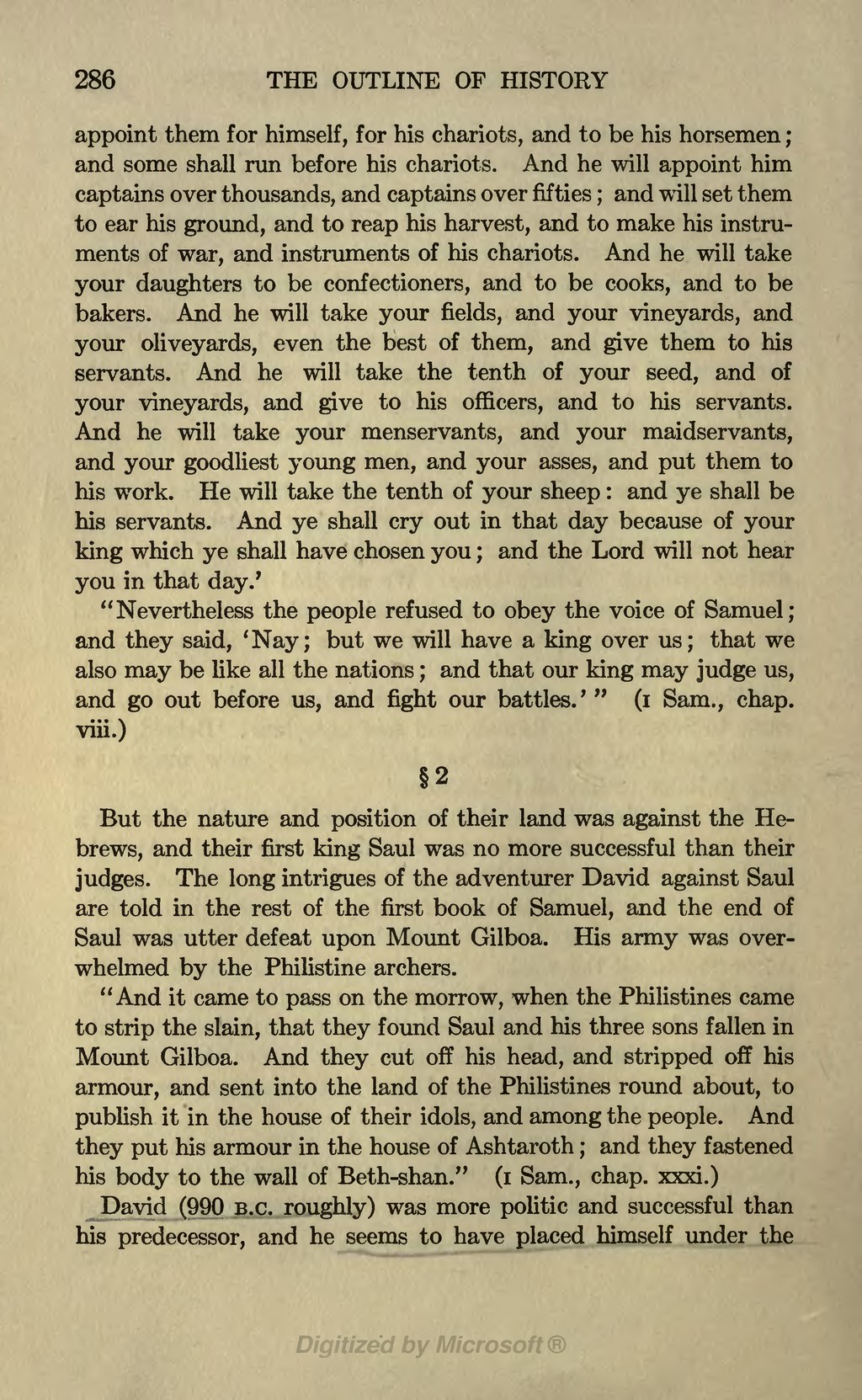appoint them for himself, for his chariots, and to be his horsemen; and some shall run before his chariots. And he will appoint him captains over thousands, and captains over fifties; and will set them to ear his ground, and to reap his harvest, and to make his instruments of war, and instruments of his chariots. And he will take your daughters to be confectioners, and to be cooks, and to be bakers. And he will take your fields, and your vineyards, and your oliveyards, even the best of them, and give them to his servants. And he will take the tenth of your seed, and of your vineyards, and give to his officers, and to his servants. And he will take your menservants, and your maidservants, and your goodliest young men, and your asses, and put them to his work. He will take the tenth of your sheep: and ye shall be his servants. And ye shall cry out in that day because of your king which ye shall have chosen you; and the Lord will not hear you in that day.'
"Nevertheless the people refused to obey the voice of Samuel; and they said, 'Nay; but we will have a king over us; that we also may be like all the nations; and that our king may judge us, and go out before us, and fight our battles.'" (i Sam., chap. viii.)
§ 2
But the nature and position of their land was against the Hebrews, and their first king Saul was no more successful than their judges. The long intrigues of the adventurer David against Saul are told in the rest of the first book of Samuel, and the end of Saul was utter defeat upon Mount Gilboa. His army was overwhelmed by the Philistine archers.
"And it came to pass on the morrow, when the Philistines came to strip the slain, that they found Saul and his three sons fallen in Mount Gilboa. And they cut off his head, and stripped off his armour, and sent into the land of the Philistines round about, to publish it in the house of their idols, and among the people. And they put his armour in the house of Ashtaroth; and they fastened his body to the wall of Beth-shan." (i Sam., chap. xxxi.)
David (990 b.c. roughly) was more politic and successful than his predecessor, and he seems to have placed himself under the
